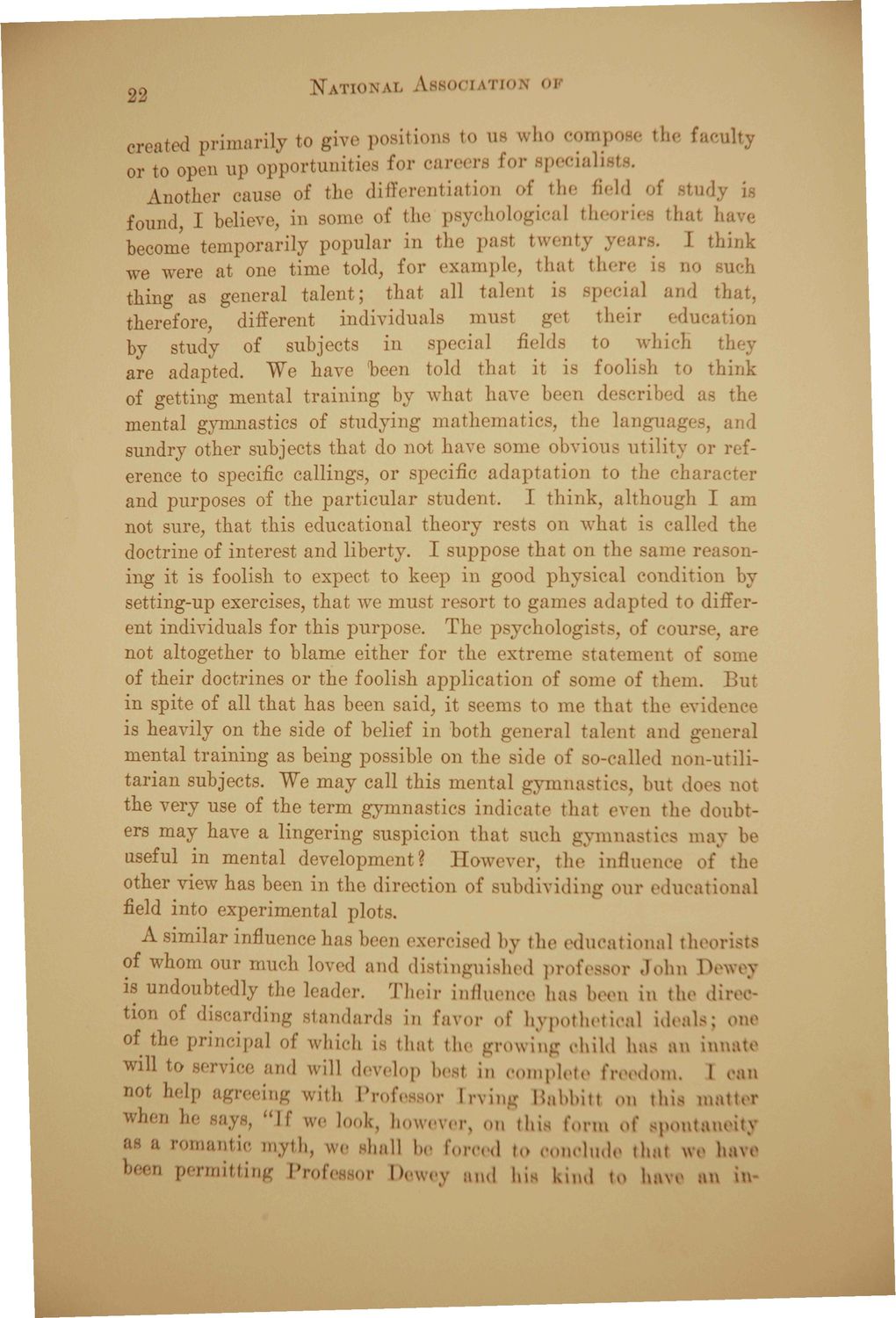| |
| |
Caption: Booklet - Kinley Speech Cirrculum and Consequences (1924)
This is a reduced-resolution page image for fast online browsing.

EXTRACTED TEXT FROM PAGE:
22 NATIONAL ASSOCIATION 01 created primarily to give positions <> u who compose the faculty < or to open up opportunities for careers for speciali Another cause of the differentiation of the field of study i found I believe, in some of the psychological theori( that ha become temporarily popular in the past twenty yeai I think we were at one time told, for example, thai there is no such thin* as general talent; that all talent is special and that, therefore, different individuals must get their education by study of subjects in special fields to which they are adapted. We have been told that it is foolish TO think of getting mental training by what have been described as the mental gymnastics of studying mathematics, the lan.au -, and sundry other subjects that do not have some obvious utility or reference to specific callings, or specific adaptation to the character and purposes of the particular student. I think, although I am not sure, that this educational theory rests on what is called the doctrine of interest and liberty. I suppose that on the same reasoning it is foolish to expect to keep in good physical condition by setting-up exercises, that we must resort to games adapted to different individuals for this purpose. The psychologists, of course, are not altogether to blame either for the extreme statement of )me of their doctrines or the foolish application of some of them. But in spite of all that has been said, it seems to me that the evident is heavily on the side of belief in both general talent and general mental training as being possible on the side of so-called non-utilitarian subjects. We may call this mental gymnastics, but does not the very use of the term gymnastics indicate that even the doubters may have a lingering suspicion that such gymnastic- may be useful in mental development? However, the influence of the & * * " » other view has been in the direction of subdividing our educational field into experimental plots. A similar influence has been exercised by the educational theorists of whom our much loved and distinguished professor J o h n IVwev is undoubtedly the leader. Their influence has been in the direction of discarding standards in favor of hypothetical ideals; one of the principal 0 f which is that the growing ohild has an innate will to service and will develop best In complete freedom. 1 can nof help agreeing with Professor Irving Uahbitl on this matter when he says, "If we look, however, on this form o( spontaneity a n a romantic myth, we shall be forced to conclude that we have 1 m permitting Professor Dewey and hi kind to have an in-
| |